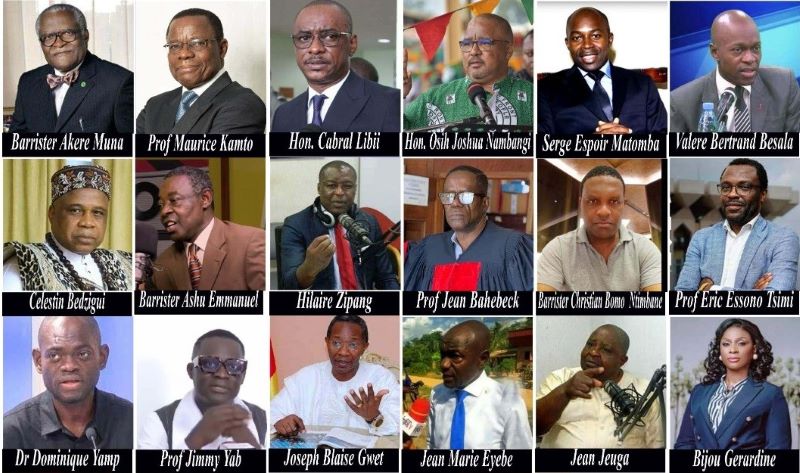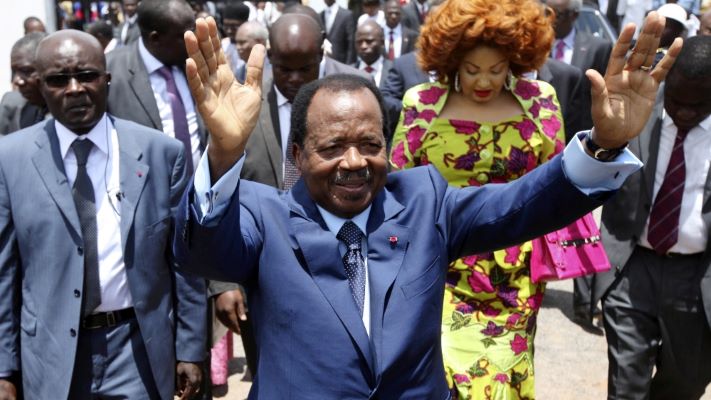As Cameroon gears up for its presidential election scheduled for October 12, a historic number of 81 candidates have submitted their applications to contest for the country’s top seat.
Yet, despite this unprecedented surge in candidacies and mounting public demands for change, 92-year-old President Paul Biya remains the frontrunner, seeking an eighth consecutive term after more than four decades in power.
Biya, who has ruled the Central African nation since 1982, made his re-election bid official in mid-July, announcing it on social media with a statement that he was responding to “numerous and insistent calls” from within the country and the diaspora.
This move, though criticized in some quarters, solidified what many analysts describe as a predictable yet symbolic assertion of authority by a man who has dominated Cameroonian politics for over 40 years.
The candidate registration deadline closed with a record number of 81 contenders in total, among them seasoned opposition figures like Maurice Kamto, Cabral Libii, and Bello Bouba Maïgari.
All three previously supported or contested Biya’s rule and have now repositioned themselves under new political affiliations.
Kamto, notably the runner-up in the 2018 election, is this time running under the banner of the African Movement for New Independence and Democracy (Manidem), a move seen as a workaround to an electoral law that could have disqualified his bid due to the Cameroon Renaissance Movement’s (MRC) boycott of the 2020 legislative polls.
Yet the presence of so many aspirants has prompted speculation about opposition fragmentation, rather than a unified push for regime change. Analysts point to the lack of consensus among opposition parties as a major hindrance to any serious challenge to Biya’s continued rule.

Despite growing dissatisfaction, especially among the youth, who make up the majority of the population, the political rivalries and strategic divides continue to weaken the opposition’s potential impact.
With nearly 40% of Cameroonians living below the poverty line, high youth unemployment, poor infrastructure, weak public services, and inflation (officially pegged at 5% in 2024), more pressure to the electoral atmosphere has been mounting.
Yet, Biya remains politically insulated. His administration continues to distribute power through a patronage system that, according to experts, helps retain elite support and fosters a semblance of national unity.
Internally, Biya’s decision to bypass formal consultations within the ruling Cameroon People’s Democratic Movement (CPDM) has stirred discontent. Notably, party members like municipal councillor Léon Theiller Onana have lodged legal challenges to his nomination, signaling cracks within the CPDM.
Several high-profile defections, including that of Maïgari and former minister Issa Tchiroma Bakary, suggest that even longtime allies are reconsidering their alignment.
Further fueling speculation about succession and internal dynamics, Secretary-General Ferdinand Ngoh Ngoh has emerged as a central figure in Biya’s campaign machinery.
According to reports, Ngoh Ngoh is now coordinating an informal strategic committee to rally support for the CPDM. His rising visibility has sparked debate over whether real power may already be shifting behind the scenes.
The president’s prolonged absences from the public eye, particularly a six-week disappearance last October, have reignited debates about his health and capacity to lead.
Nonetheless, Biya recently reshuffled key military posts, a move widely interpreted as an attempt to secure loyalty within the ranks ahead of the vote.

Among the 81 presidential hopefuls, only seven are women, with candidates like Eliane Véronique Eboutou and independents such as Mbengono Zouame Epse Ndzie Ngono Guyleine making the list.
This gender imbalance highlights ongoing issues of representation in Cameroon’s political arena.
As the electoral commission, Elecam, prepares to vet the applications ahead of the August 13 deadline for publishing the final list, Cameroonians remain in a state of watchful anticipation.
While the large number of candidates signals political ambition and perhaps a growing desire for renewal, the entrenched structure of Biya’s regime, backed by military influence and fragmented opposition, may again prove resilient.
Despite concerns over the fairness and transparency of the electoral process, Paul Biya’s enduring control suggests that, unless a unified and compelling alternative emerges, Cameroon’s long-serving leader may yet extend his rule into a fifth decade.
